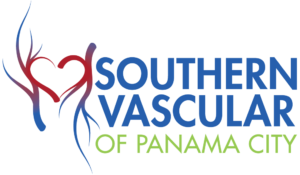Venous Ulcers
If you have diabetes, venous insufficiency, or another condition that negatively affects your blood flow, you’re at risk of venous ulcers. At Southern Vascular of Panama City, LLC, with locations in Downtown Panama City, Panama City Beach, Port St. Joe, and Chipley, Florida, board-certified vascular and endovascular surgeon Ashish Gupta, MD, FACS, RVT, and the team offer multiple treatment options to address venous ulcers. To schedule an appointment, call the office or book online today.
Venous Ulcers
What are venous ulcers?
Venous ulcers are slow-healing, open wounds that occur due to poor circulation. They can develop anywhere on your body but are especially common in the lower extremities like the legs and feet.
Dr. Gupta is wound care certified and the director of wound care at Gulf Coast Regional Medical Center. This experience and professional knowledge ensures each patient of Southern Vascular of Panama City, LLC, receives the best, most comprehensive care.
What are the symptoms of venous ulcers?
Venous ulcers usually form on the lower legs beneath the knees. Telltale signs of venous ulcers include:
- Inflammation
- Swelling
- Aching
- Itchy, hardened skin
- Scabbing or flaking
- Brown or black skin
As a venous ulcer grows, you might also notice pus or other liquid oozing from the wound.
Who is at risk of venous ulcers?
Venous ulcers occur due to poor circulation or damage to your veins. Some of the most common causes of venous ulcers include:
- Diabetes
- Varicose veins
- High blood pressure
- Trauma
- Deep vein thrombosis (DVT)
- Clotting disorders
- Pregnancy
You’re also more likely to experience venous ulcers if you’re overweight or obese.
How are venous ulcers diagnosed?
Southern Vascular of Panama City, LLC, diagnosis venous ulcers by conducting a thorough physical exam, reviewing your medical history, and asking about your symptoms and lifestyle.
Visual observation is usually enough to make a diagnosis. If your provider suspects you may have another underlying health problem, they might also order ultrasound imaging or lab tests.
How are venous ulcers treated?
Southern Vascular of Panama City, LLC, offers several types of treatment to address venous ulcers. Depending on the location and severity of your venous ulcers, they might recommend
Venous ablation/venous perforator therapy as stated above or:
Topical ointments or gels
If your ulcers are at risk of infection, your provider might recommend a topical ointment or gel to kill harmful bacteria and prevent further infection. Certain topical treatments can also complement your body’s natural healing process.
Prescription medications
If your ulcer is due to high blood pressure, high cholesterol, or another chronic condition, you might benefit from prescription medications like beta blockers, statins, or blood thinners. These medications can improve your cardiovascular health and lower the risk of clotting.
Wound dressings
If you have a venous ulcer that’s growing or at risk of infection, you might benefit from wound dressings. Medical-grade dressings protect your ulcer from harmful bacteria and other microorganisms. This allows your skin to scab over and heal.
Hyperbaric oxygen therapy
Hyperbaric oxygen therapy (HBO2) is a treatment used to speed up wound healing. It exposes you to levels of oxygen that are three times higher than the natural atmosphere. The more oxygen your blood can carry, the quicker venous ulcers can heal.
Dr. Gupta is the only vascular wound care specialist in the area with HBO2 certification.
To learn more about the various treatments for venous ulcers, schedule an appointment at Southern Vascular of Panama City, LLC. Call the office nearest you, or book a consultation online today.
